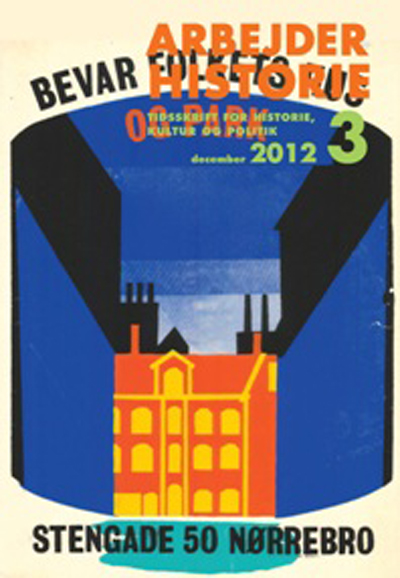Revolutionen udskudt
Danske trotskister i 1940'erne
DOI:
https://doi.org/10.7146/arbejderhistorie.vi3.145024Resumé
Bertel Nygaard: Revolution postponed. Danish Trotskyists during the 1940’s, Arbejderhistorie 3/2012, pp. 77-94.
Small groups of Trotskyists – dissident communists following the ideas of Leon Trotsky, the exiled Russian revolutionary – had existed in Denmark since German Trotskyist refugees arrived in Copenhagen following the Nazi takeover in 1933. During the Second World War and the German Occupation of Denmark, a core group of Danish Trotskyists advocated a strategy of mass-based resistance instead of the type of guerilla sabotage conducted by the main resistance movements. This strategy was premised on anticipations of a great wave of social revolution in the West as well as the USSR on the heels of the war. When this did not occur, the Danish Trotskyists were forced to revise their approach. In the process, a number of tiny networks of people, held together internally and differentiated from each other by personal as well as political considerations, expressed widely different anticipations for the Immediate future as well as a variety of political and organizational tactics considered necessary to the continuation of revolutionary politics in unrevolutionary circumstances. One network around Poul Moth, working to combine Trotskyism with the spread of Esperanto and the ‘anationalist’ ideas of the labour Esperantist movement, SAT, insisted on spiting circumstances by continuing mass agitation for revolutionary ideas. Another network, around Jacob Vedel-Petersen, was markedly pessimistic about the immediate future and revolutionary agitation, predicting the imminent rise of new forms of Fascism in Western Europe. These people opted for critical revisions of Marxist theory and analysis of contemporary society, in order to cope with such anticipations. A third, more heterogeneous network around Børge Trolle strove to continue their engagement in mass movements, but in forms adapted to circumstances characterized by the immediate impossibility of revolution. Despite a series of attempts at holding these factions together, even expanding them by short-lived attempts to establish a new communist party, Revolutionære Kommunister, they found it difficult to sustain collaboration when faced with extremely modest success. By late 1947, and, after some attempts at reviving their collaboration, the three groups had fallen apart, leaving only the group around Moth to continue Danish Trotskyism.
Downloads
Publiceret
Citation/Eksport
Nummer
Sektion
Licens
Copyright (c) 2012 SFAH og forfatterne

Dette værk er under følgende licens Creative Commons Navngivelse – Ikke-kommerciel – Ingen Bearbejdede Værker (by-nc-nd).


